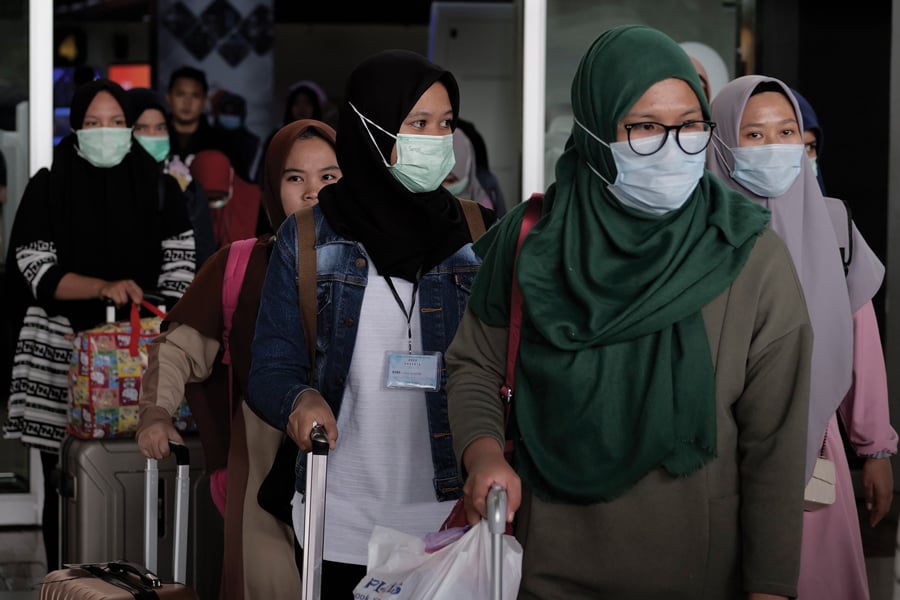Coronavirus not a risk to Evanston, experts say
Wisnu Prasetyo/SOPA Images/LightRocket/Getty Images/TNS
Airline passengers wearing face masks as a precaution to the outbreak of the coronavirus at the airport in Cengkareng, Indonesia, on Saturday, Feb. 1, 2020. Here in Chicago, though, experts generally agree that residents should be more concerned about catching the flu.
February 5, 2020
COVID-19 News
Even though the novel coronavirus has crept into five states — including Illinois — members of the Evanston community remain unfazed.
Weeks ago, the coronavirus, a disease also known as 2019-nCoV and that has less extreme symptomatic similarities to SARS, remained confined to Wuhan, China. As of Tuesday, the virus had infected 24,607 individuals in more than 20 countries.
The majority of the cases came from mainland China, but there are currently 12 documented in the United States, two of which are in the Chicago area — the first person-to-person transmission of the disease in the U.S.
Devanee Washington, a food scientist and nutritionist who lives in Chicago, said it was “reassuring” to find out that the cases in Chicago required close person-to-person contact to transfer the virus, so she’s more focused on other illnesses that have higher mortality rates.
“In the past month, strep and flu have been more of a concern to me and that they’re commonly spread,” Washington said. “I’m telling my husband…to be careful because he’s a frequent flyer.”
Feinberg Prof. Karla Satchell, who teaches microbiology and immunology and receives funding from the National Institute of Allergy and Infectious Diseases to research 2019-nCoV, said people in the Chicago area should not be afraid of catching the disease.
“The case arrived and was caught very quickly,” Satchell said. “The risk is very low of contracting this, and the public should view the risk as low because (officials) were able to very quickly contain the single case and all the surrounding contacts.”
Satchell is also the co-director of the Center for Structural Genomics of Infectious Disease in Chicago, where she does more research on diseases like the coronavirus. Satchell said that drug development for coronavirus treatment would stem from SARS research and take months rather than years.
She said the flu virus currently poses the greatest threat to local residents, and encouraged people to receive vaccinations and to wash their hands.
Robert Murphy, the executive director of Northwestern’s Institute for Global Health, agreed that worrying about the flu was more important than stressing about catching the coronavirus.
He said typically, these viruses don’t mutate in the middle of the epidemic. However, he added that people should be proactive about any symptoms they might have.
“If you feel sick, go see a doctor — don’t just assume it will pass,” Murphy said.



